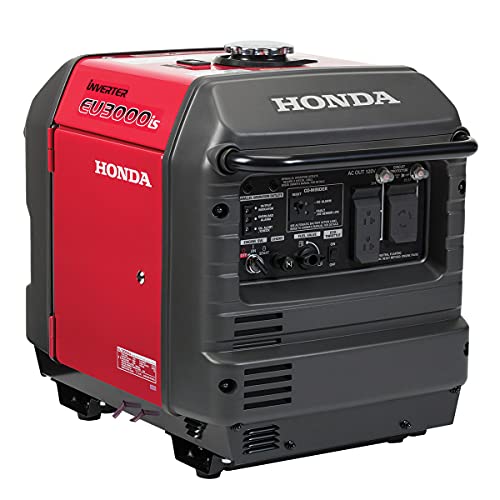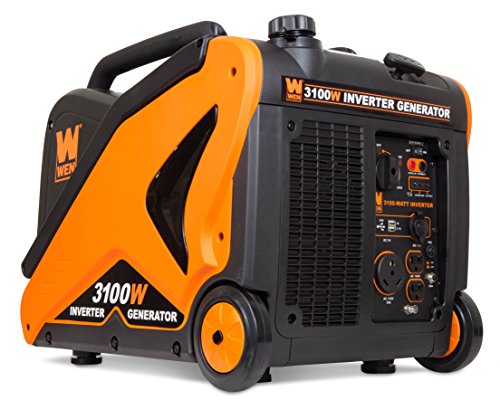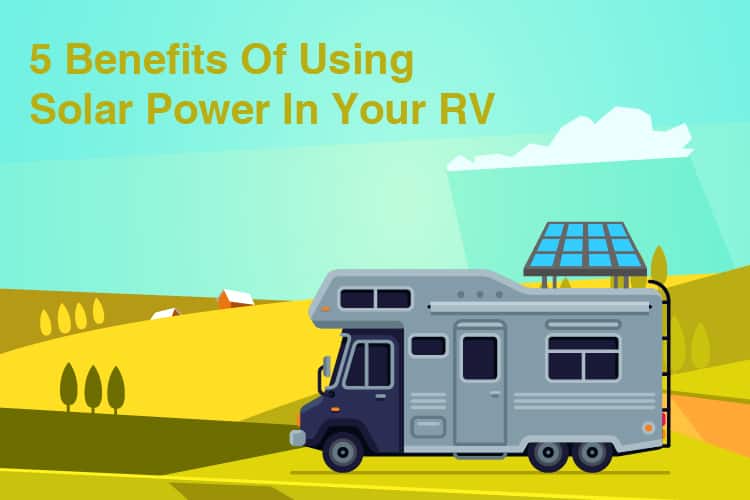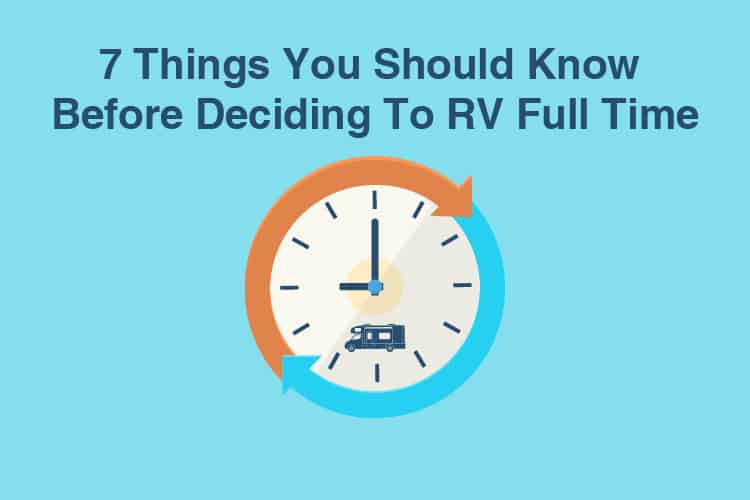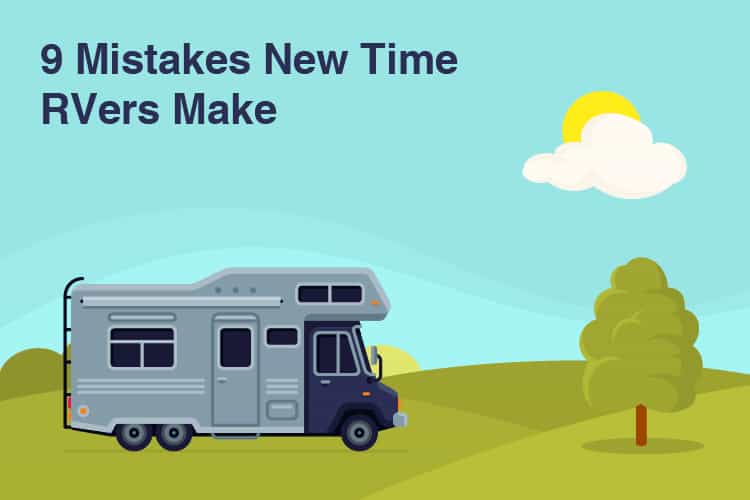Power plays an important role in your RV. Whether you use your RV for traveling or for living in, you will need to have the right equipment to power all of your appliances.
The right generator will give you enough power to support all of the basic appliances, as well as any devices such as smartphones and tablets you’ve got for entertainment.
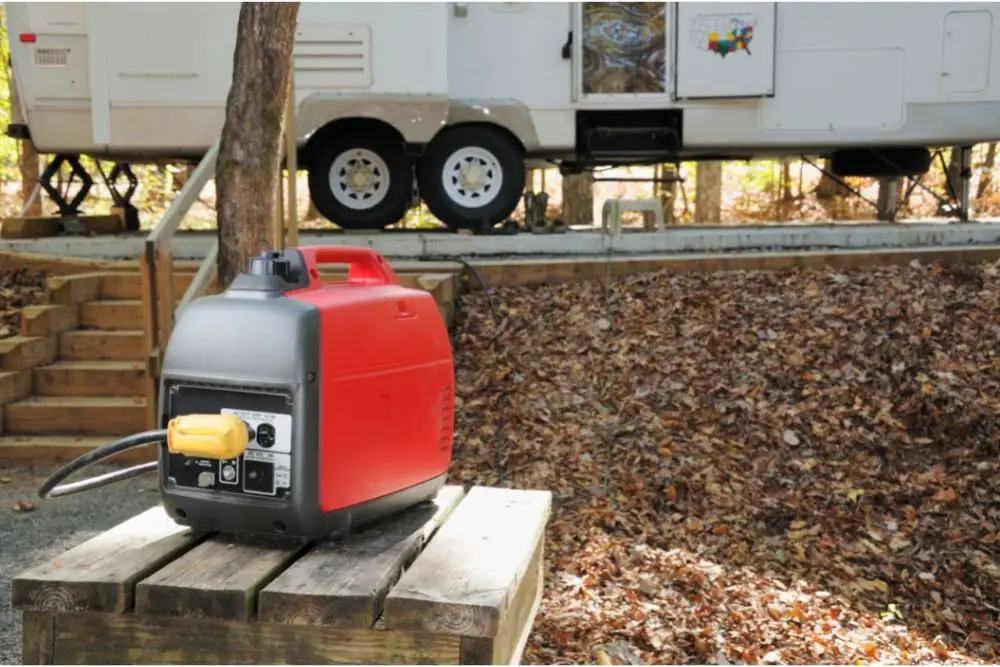
Sometimes it’s not always possible to plug your 30 amp RV into a power source. Especially when you’re out on the road! In this case, you will need a reliable generator handy to help solve all of your power problems.
How can you be sure that you’ve found the right sized generator for your RV?
You will need to choose a generator that is capable of supplying 3,000 watts at an absolute minimum for your 30 amp RV. This should be able to power all of the necessary equipment that you have in your RV.
However, if you have power hungry appliances such as microwaves and air conditioners running at the same time, you might be pushing this 3,000 watt generator to its limits.
It’s important to remember that the absolute maximum wattage that’s compatible with a 30 amp RV is 3,600 watts, so you should opt for this size if you want to power all of your appliances at the same time. You shouldn’t opt for anything larger than this as it won’t work with your RV.
However, the exact wattage that your RV will require will depend on how many appliances you usually use at the same time. It will also be dependent on the start-up wattage and the running wattage of each appliance. Not sure how to calculate these wattages? We’ll be able to help you with this down below.
We’re also going to review 4 of the best generators for a 30 amp RV to get you started off on the right foot.
How to choose the best sized generator for a 30 amp RV
Some RVs do come with generators already installed in a separate compartment underneath the vehicle. However, this isn’t always the case. You may also find that you need to buy an additional generator to work alongside this included generator. Or you may even need to replace it over time.
We’re going to go into detail about all the key criteria you need to know about generators for 30 amp RVs to help you choose the right generator for your vehicle.
Wattage of the generator
You can work out the maximum wattage for 30 amp service by multiplying the amperage by voltage. So if we use the equation amps x volts = watts we can work out how many watts we need for a 30 amp generator. 30 amps x 120 volts = 3,600 watts.
So we know that your 30 amp RV won’t need a generator larger than 3,600 watts. There’s no point in buying a larger generator such as 5,000 watts for your 30 amp RV, as the additional 1,400 watts will go to waste. However, if you need a generator that can power more intense appliances you will need to look for a larger generator.
It’s important to note that just because your RV can cope with a maximum wattage of 3,600 watts, you don’t necessarily need to buy a generator that produces this much wattage. This is because the 3,600 watts is the maximum that your RV can cope with at any one time. So in most instances, your RV wattage needs will be a lot less than 3,600 watts.
To find out how much wattage you need to cover, you will need to examine each appliance that you have in your RV. This is where we need to understand how start-up wattage and running wattage differ. The start-up wattage is the amount of power your appliance needs to start itself. The running wattage is how much power the same appliance needs to stay running so you can use it.
The team at Honda has put this together in a helpful table for you. So let’s take a look at the typical start-up and running wattage of most RV appliances and electronic devices.
| Appliance | Start-up Wattage | Running Wattage |
| Air conditioning unit (11,000 BTU) | 1,600 | 1,010 |
| Microwave (650W) | 1,000 | 1,000 |
| Refrigerator | 600 | 180 |
| Laptop | 200 – 250 | 200 – 250 |
So now we know that the average start-up wattage is much higher than the wattage needed to keep your appliances running. This will make it the more important out of the two factors when it comes to choosing the best generator for your 30 amp RV.
You will need to calculate the start-up wattage of all the appliances and devices in your RV. This will then give you the maximum amount of power that will be needed in your RV at any given time.
Chances are you won’t ever have to worry about using each and every appliance at the exact same time in your RV. But it’s better to be prepared so that everything can run smoothly.
If you make sure to be aware of the appliances that are running at any one time, you can save on the energy that your generator uses. This will also consume less fuel than if you tried to power everything at once, and will ensure your new generator lasts you for many years to come.
A good rule of thumb to go by is to choose a generator that will be able to power your largest appliance without any issues. For most RVs, this will be your air conditioning unit.
If your chosen air conditioner needs to use 1,600 watts to get started and then uses 1,010 watts to keep running, you will need a generator that’s capable of running at least 1,600 watts.
However, this won’t leave you much room for other appliances while your air conditioner is on the go. You should also be wary of blowing a fuse or popping a breaker, too.
So this is why you should always err on the side of caution and opt for a larger generator. This will give you plenty of wiggle room for using other appliances at the same time.
Level of noise
Don’t fancy being kept up throughout the night by a noisy generator? Or keeping your RV park neighbors up too? Then noise will be an important factor for you to consider when you choose your next generator for your RV.
It’s surprising how even the quietest of conversations can keep you up at night. The average noise level of a human conversation is roughly 60 decibels, so you will need to opt for a generator that won’t produce noise louder than this.
The good news is that most of the 30 amp RV generators tend to produce an average sound level of between 55 to 70 decibels. Especially when they’re running on economy mode!
Type of fuel
For the majority of generators, there are three main types of fuel: diesel, gas, or propane. So how should you choose which generator to use with your RV?
If your RV uses gas, then a gas generator will be the best fit. This is because you’ll be able to get gas for your generator pretty much anywhere. And you can also fill it up when you fill up the tank of your RV, too. It’s worth bearing in mind that gas powered inverter generators are more economical and fuel efficient than standard gas powered generators are.
If your RV uses diesel fuel, chances are that a diesel generator will be the best choice. This is because a diesel generator has been designed to give you maximum power.
Propane generators also have a range of great benefits. These generators have an extended shelf life compared to diesel or gas generators, and they also deliver cleaner emissions.
However, the amount of power that a propane generator can produce will be largely reliant on the size of the fuel tank. Propane can also be harder to find in certain locations than gas when you need to top it up.
Another option to bear in mind is dual-fuel generators. These will use a combination of fuels to give you the power your RV needs. This will be handy if you want a backup power source just in case you can’t find one type of fuel.
These generators are highly economical and you won’t need to store as much fuel overall. Because of their great benefits, these are some of the most expensive types of generators.
Easy to transport
You will need to bear in mind that the types of generators that are suitable for use with a 30 amp RV aren’t very light. Of course, you won’t want to do any damage to your back when you need to move the generator. Portability is a factor that you will need to think about.
The best types of generators will have this portability in mind. They feature helpful collapsible handles, or even solid wheels to help you move them around the place as you need to.
You should look for these features when it comes to choosing your next generator so that you can move it around the place. This will be especially helpful if you tend to move your RV around a lot.
Parallel operation
Chances are this isn’t something that you’ll have to worry about with your 30 amp RV. Parallel operation is something that’s typically used for 50 amp connections. However, it’s something we’re going to cover just in case the appliances you have in your RV require more power than a single generator can supply.
In this case, you will need to hook your RV up to a second generator to give you the power you need. This should then help power your RV, as well as any other devices and appliances that you want to use. There is just one important thing that you will need to bear in mind first.
The two generators that you’ve chosen must be capable of supporting parallel operation in order to give you power simultaneously. For most of these generators, you will need to buy another cable so that you can make use of this parallel operation function.
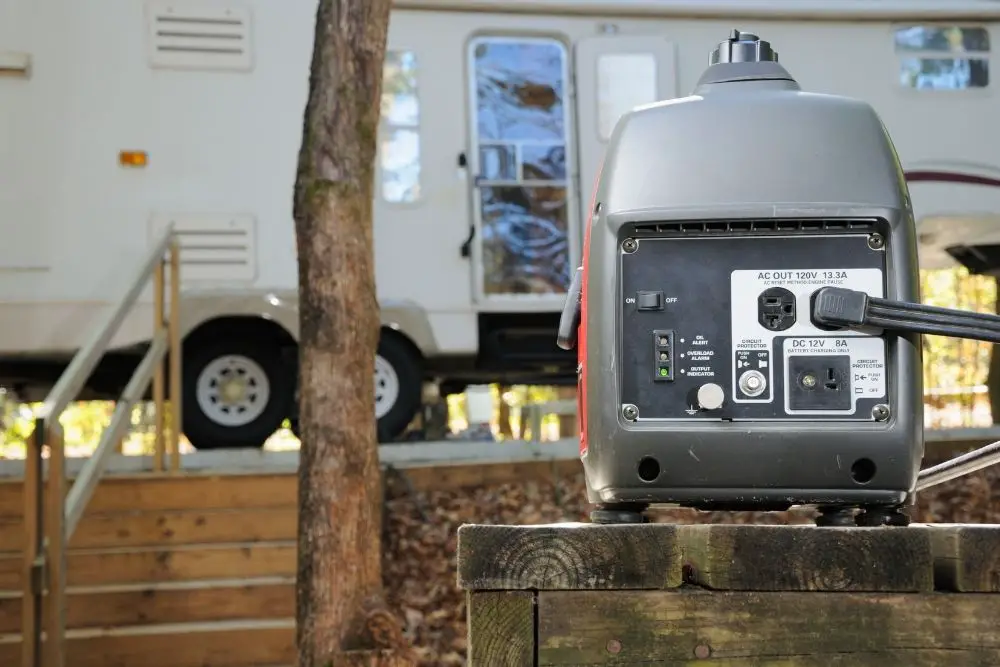
Best generator for 30 amp RV
So as we’ve discussed in more detail above, you will need to work out how much power your RV appliances need. This will help you to find the best generator for your 30 amp RV. If you tend to use appliances that have a significant power draw, your required wattage will be larger than most standard RVs.
Here are 4 of the best generators for a 30 amp RV to get you started in the right direction.
1: Champion 3100 Watt Portable Generator
Trying to find a more budget friendly generator than some of the pricy models on the market? Then the Champion 3100 watt portable generator is the pick for you and your RV.
This model is available at a much more affordable price than some competitive models. This particular generator is one of the best models that can still deliver on power without affecting your budget too much.
No products found.
Check Latest Price
A handy feature of this generator is that it comes with two 120 volt 20 amp household outlets and a 12 volt outlet. So even though you’re using it with your RV, you can use the generator to power other devices such as phones. This makes it a handy generator to take with you while car camping, too.
You’ll be able to easily control all aspects of this generator. It comes with a control panel that is easy to access and use. This will be handy if you want a generator that will be easy to use when you need it most!
This particular generator comes with a range of great safety features, too. It has a low oil shut off sensor to keep the generator protected from damage. Other safety features included with this generator include an economy mode. This will help you to lower the fuel consumption of the generator, as well as make it quieter to use.
PROS
- Budget friendly – more affordable than some competitive models
- Protection – comes with a range of circuit breakers to protect your appliances and RV from any overloads
- Economical – features an economy mode to lower the electrical load and prolong the generator’s life and improve fuel efficiency
CONS
- Solo generator – doesn’t come with parallel capabilities
2: Briggs & Stratton P3000 Power Smart Generator
If you like to see just how much power is being consumed at any given time, then the Briggs & Stratton P3000 Power Smart Generator is the choice for you.
This particular generator comes with an easy-to-read LCD display. This shows you how much power is being used, as well as how long the generator has been operating for.
It can also help you keep up to date with any maintenance that needs to be done, such as air filter, oil, and spark plug changes.
A handy feature of this particular generator is that it’s capable of supporting parallel operation with the same model. If you buy two Briggs & Stratton P3000 Power Smart Generator, you will need to buy a parallel connector kit from the same manufacturer to make use of this feature.
What’s really great about this particular generator is that it’s a great fit for those who are conscious of the energy they consume.
The Briggs & Stratton generator has a running time of 10 hours with 25% load and a maximum of 21.7 running amps. It has been designed to be as efficient as possible to reduce the noise produced, the generator’s gas emissions, as well as the amount of fuel it consumes.
PROS
- Portable – comes with wheels for easier transportation and doesn’t weigh as much as competitive models
- Easy to read – comes with an LCD display which shows maintenance reminders, total unit hours, and current power usage
- Sensitive electronics – provides the clean power needed for sensitive electronics such as phones and laptops
CONS
- Smaller tank – can only hold up to 1.5 gallons of fuel
3: Honda Power Equipment Portable Generator
Looking for a generator that’s capable of powering a 13,500 BTU air conditioning system? The Honda Power Equipment portable generator is the ideal choice for you. The air conditioning unit is usually the appliance which needs the largest amount of power when it comes to starting it up. This generator will be more than capable of tackling this.
Be sure to check the BTU rating of your RV’s air conditioning unit before choosing this particular generator. Providing it’s suitable for use with this generator, this model is the perfect choice for those who use their air conditioning unit a lot.
What’s really handy about this generator is its electric start function. You won’t have to work about any crank start features that could damage your back or shoulder. There is the option of using a crank start feature if you prefer this, or in the unlikely case that the electric start fails to operate.
This Honda generator comes with several great features. It can deliver clean, stable power. There’s an oil alert feature to help prevent any damage to the generator itself. The circuits have also been designed to prevent the generator from being damaged by overloads. It also features quiet operation.
PROS
- Efficient – gives you up to 20 hours of running time with a full tank of gas
- Parallel capability – you can easily use this generator with another generator for more power
- Large fuel tank – can hold up to 3.4 gallons
CONS
- Heavy – this generator is on the heavy side at 150 pounds
4: WEN Super Quiet Portable Generator
Want to choose a generator that’s capable of lowering the fuel consumption? Then the WEN super quiet portable generator will be the best fit for your RV. Fuel consumption is one of the downsides to generators.
However, this model can help lower this thanks to the economic mode.
The economic mode allows you to automatically adjust the amount of fuel it consumes while in operation. All while you plug in and unplug different appliances and devices from the generator! This helps to greatly reduce the fuel consumption of the WEN generator.
One of the best features of this generator is its super quiet operation. It only produces around 57 decibels of noise while running at a quarter load. It also has a total running time of 7.5 hours at a half load.
This quiet operation will make the WEN generator the perfect pick for hunters, as it’s capable of meeting Forest Service noise requirements. So you won’t have to worry about scaring off anything!
Another great feature of this generator is the fact it comes with multiple outlets. So you can easily power all of your devices as well as your RV! It also comes with 2 three prong 120 volt ports, one 12 volt DC port, and two 5 volt USB ports.
PROS
- Quieter operation – capable of running at 57 decibels while at a quarter load
- Several outlets – comes with up to 6 outlets for you to use while camping
- Economical mode – helps you to save on the amount of fuel consumed by your generator
CONS
- Heavier – the generator is one of the weightier models, clocking in at 80 pounds
FREQUENTLY ASKED QUESTIONS
How do 30 amp and 50 amp services differ?
We know that a 30 amp service is capable of delivering 3,600 watts. The difference between a 30 amp service and a 50 amp service is that a 50 amp service is able to deliver closer to 12,000 watts of power.
Because a 50 amp service is capable of delivering a higher amount of power, it will be able to run larger appliances and devices that need a bit more power. However, it’s important to note that the plugs and sockets needed for these services are different.
So whereas a 30 amp service needs a three prong plug, a 50 amp service needs a four prong plug. The 30 amp service plug tends to have a single 120 volt hot wire, whereas a 50 amp service needs two 120 volt hot wires.
Can you use a 50 amp plug with a 30 amp RV?
You can use a 50 amp plug with a 30 amp RV, however, you will need to buy a 30 amp to 50 amp adapter. Because of the unique shape of this adapter, it has been dubbed “dogbone”. Some manufacturers will use this name to market the adapter, which makes it easier to find what you need.
What is a 30 amp service?
The amp rating of an RV basically refers to how much electrical current is needed to power all of your appliances, as well as charge any devices you have. A 30 amp service can supply a total of 30 amps of 120 volts along a single line. This is capable of supplying your devices with 3,500 watts of power.
In summary
It’s important to choose the right generator for your RV. However, the right generator for your RV will depend on your wattage needs.
Some of the factors that you need to consider when choosing the best generator for your 30 amp RV are the level of noise it produces, how portable it is, what type of fuel is needed, as well as how much wattage it is able to deliver. The relevance of each criteria for your needs will be entirely dependent on your preferences.
You should ensure that your portable generator is suitable for use with your RV’s electrical specifications. You should also make sure to carefully follow the manufacturer’s guidelines to prevent any unwanted shortages, overloads, or other electrical problems.



